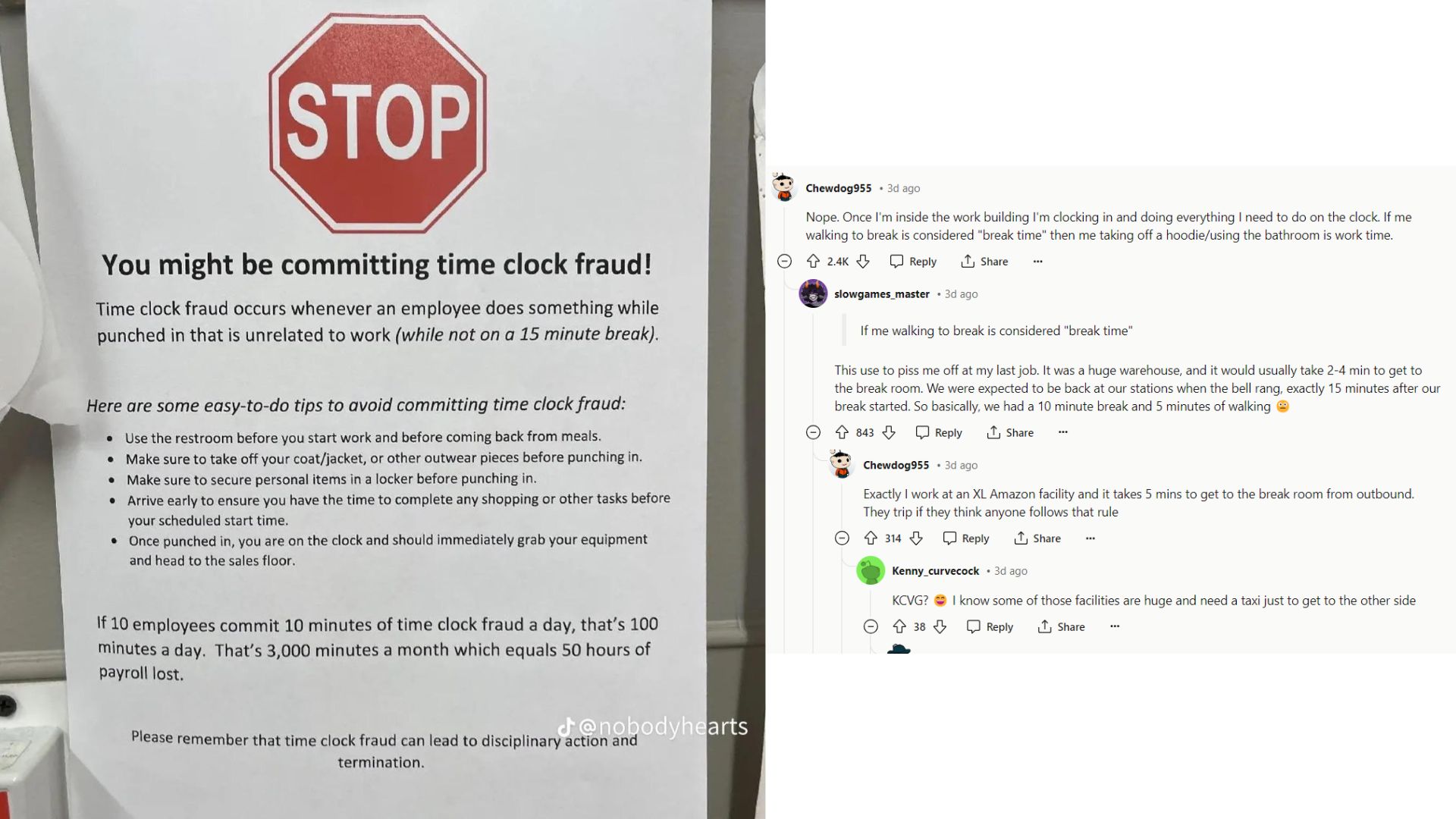A recent office memo outlining rules to combat “time clock fraud” has sparked outrage on social media platforms after a Reddit user shared it online. The memo, which instructs employees on measures to prevent time clock fraud, has garnered significant attention and criticism for its stringent regulations.
Don’t do these things. It’s theft. Seriously, do not.
byu/roofus8658 inantiwork
According to the memo, time clock fraud occurs when employees engage in activities unrelated to work while punched in, except during designated 15-minute breaks. The five rules outlined in the memo include using the bathroom before starting work or during breaks, removing coats before clocking in, and arriving early.
The Reddit post captioned, “Don’t do these things. It’s theft. Seriously, do not,” has amassed over 3,400 upvotes since its sharing. The comments section overflowed with users expressing shock and disapproval towards the rules, with many sharing their own experiences of navigating work and break times within their workplaces.
One user recounted frustrations from a previous job where a short break was allocated insufficient time due to the distant location of the break room, leaving only a few minutes of actual rest. Another user highlighted the hypocrisy of not addressing employers’ expectations for employees to work beyond scheduled hours or through breaks as a form of time clock fraud.
Furthermore, a Reddit user strongly opposed the notion that activities such as using the bathroom or removing outerwear should be considered as work time only when clocked in, emphasizing the need for fair treatment of employees.
Amidst the criticism, some users shared positive experiences from previous employers who provided additional time for employees to travel to and from break areas, demonstrating a more accommodating approach to work time management.
Others revealed innovative practices from their past workplaces, such as clocking in from the parking lot using a mobile app with extended range, advocating for compensation for even the shortest durations of work-related activities.
In summary, the memo’s rules aimed at curbing time clock fraud have ignited a heated debate online, reflecting divergent opinions on workplace policies and employee rights.


















